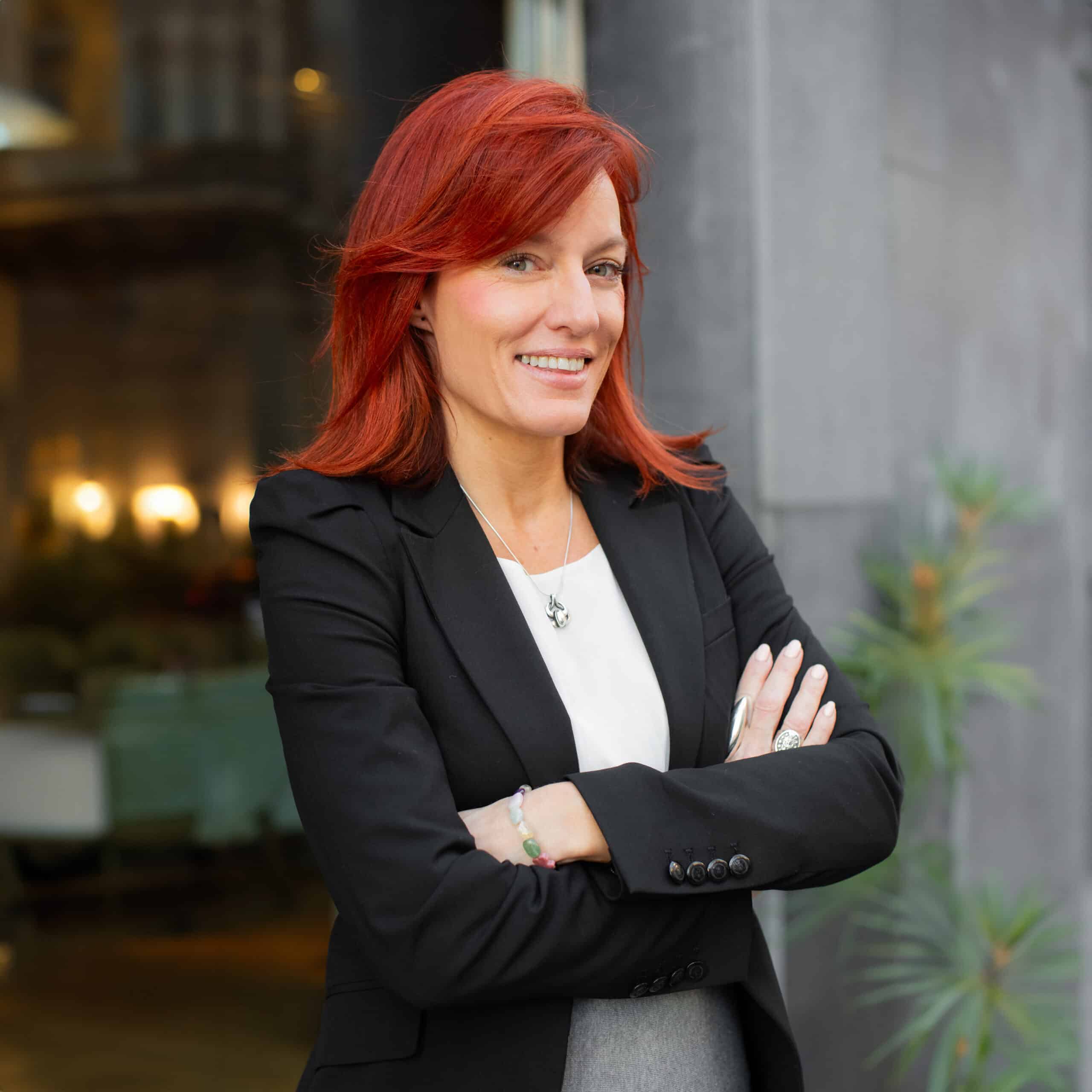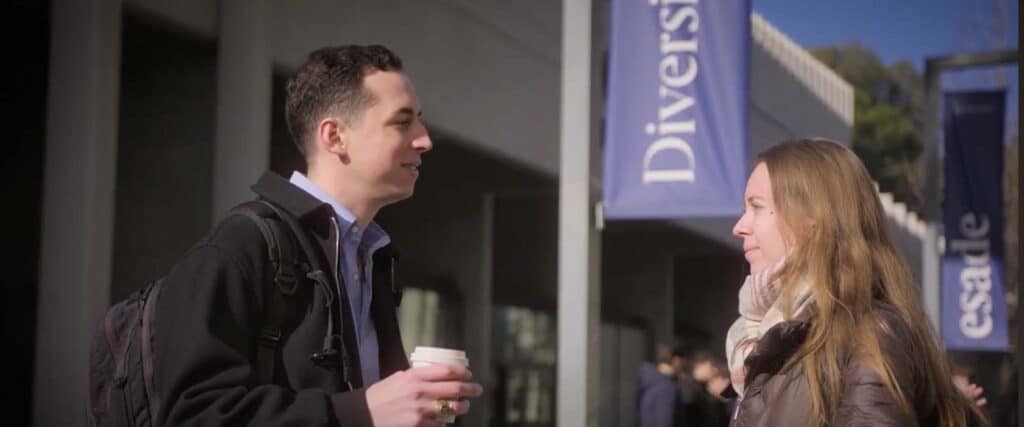Human-Centered Leadership: Deep Insights from Executive Coach Omid Aschari
Affiliate Professor Omid Aschari is an executive coach with a focus on leadership and life. He is also Senior Advisor to PRME at the United Nations Global Compact in New York. His main responsibilities there: Global Leadership & Development and Governance & Strategy. Omid is also Chairman and CEO at ASG Strategy Group. Omid brings a unique perspective to leadership and strategy along with a wealth of hard-earned wisdom. He recently caught up with MASTERGRADSCHOOLS to share insights from his long-standing tenure at the University of St.Gallen and his perspective on human-centered leadership.
Understanding Organizations as Living Systems
Omid sees organizations as living systems, “They’re social systems, they’re driven by people and by relationships and they’re animated by purpose.” (00:21)
Early in his career, he recognized a critical truth. Even the best strategies can fail. He elaborates, “Even the best strategies fail without leadership, without emotional intelligence, without psychological safety, and especially the aspect of aligned leadership.” (00:39)
It is this realization that shaped his human-centered approach. “Strategy is not just about frameworks. It’s about people making sense of the world, how they engage with each other, and how they grow as individuals,” he adds. (01:04)
The Evolution of SIM: A Human-Centric Educational Philosophy
Since its inception in 2004, the Master in Strategy and International Management (SIM) at the University of St.Gallen in Switzerland has set the benchmark for management education. By 2022, it had ranked #1 in the Financial Times Global Masters in Management Ranking for 12 consecutive years. In 2024, it was once again #1.
After stepping down as Managing Director of the SIM program in 2024, Omid reflects on the evolution of the SIM over his 21-year leadership. It began with a promising idea. He believed there was room for improvement in management education. This idea transformed into a world-record-holding program. The SIM program was ranked #1 in the world for 13 years.
Among other things, he attributes this success to continuous self-reflection. He and his colleagues were constantly asking themselves, “What does it take to develop a truly exceptional program?” (01:58)
For Omid, education transcends intellectual growth. He explains, “It’s not just about intellectual growth… It’s also about personal growth, intercultural exposure, real-world impact, and walking the talk.” (02:07)
He believes in creating a culture that keeps these elements in focus. A global community of leaders who have experienced the program now reinforces this idea. The enduring success of the program now proves this approach is highly effective.
Excellence Rooted in Responsibility and Human Connection
Interestingly, Omid reveals that he never actively pursued rankings. He offers, “I never chased rankings, but I chased excellence, and excellence comes with a responsibility.” (02:59) Omid believes that you cannot claim excellence without personal growth.
Otherwise, he says, you risk failing to live up to the responsibility that comes with heightened abilities. To Omid, “The [positive] rankings are a product of the obsession with quality, with relevance, and with human connection.” (03:36)
Beyond rankings, Omid sees the deeply built trust with students as the real differentiator. He sees students as co-creators, not just consumers. Their success is the program’s legacy.
Redefining Impact and Adapting to Future Challenges
Omid defines true impact in management education beyond degrees and titles. “Impact is not about diplomas or degrees or job placements. I know that’s important, but impact is not about that, it’s about transformation.” He adds, “Transformation means that you need to grow while you’re solving something.” (05:09)
Long-term employability and a meaningful career require internal maturation. True impact means daring to ask the important questions. To Omid, it’s about creating a better world, which involves elevating human potential.
Looking ahead, Omid sees management education adapting to future challenges. His work with the United Nations highlights the importance of the UN’s Sustainable Development Goals. He believes management education has a vital role in achieving these goals. Organizations are tools for this, so business education must evolve. He emphasizes, “If we want to change the way business works, we need to change also the way business education works.” (07:30)
The era of linear careers and static knowledge is ending. Omid stresses, “Management education needs to become more social, more interactive, more agile, more experiential in the way it is set up. And it needs to be more personalized.” (08:03)
The very definition of “career” might need critical rethinking. Omid offers, “In a world where we need more people who think or understand their impact as serving humanity, the term career might become obsolete… It’s more about responsibility and living up to one’s values and aspirations and coupling them with higher needs.” (08:35)
Furthermore, he thinks that integrating technology while maintaining a human touch is also crucial. Hybrid models, coaching, and lifelong learning communities will be key.
The Superpowers of Future Leaders
Omid identifies key skills for successful leaders in the next decade. He proclaims, “The superpower of tomorrow’s leaders is definitely clarity in the face of huge complexities and ambiguities.” (09:54) He adds that self-leadership is crucial. Moreover, ‘relational intelligence’ in diverse contexts is important. Systems thinking is also critical.
However, to Omid, “The most important [skill] I would say is the courage to choose purpose over ego.” (11:04) The world needs people who have developed as human beings. He offers this insight, “There are many intelligent people out there. But what we lack is people who have developed as human beings to an extent that they can defer their ego to the bigger cause, to ensure the future ability and viability of the human race and our planet.” (11:16)
This wisdom holds the weight of 21 years of developing leaders. It speaks to the evolution of priorities in a world that is shifting and transforming at an unmatched pace.
Fostering Excellence and Responsibility in Business Schools
Omid argues that excellence is not just about performance metrics. It’s about making meaningful contributions. He adds, “We really need to shift from teaching business for profit to business for purpose.” (12:00) Embedding ethics, sustainability, and self-awareness is vital in management education.
Subsequently, business schools must redefine excellence. They need to move beyond a purely research-driven focus. Understanding human reality is much broader. Business schools need to “walk the talk”. “There is no trade-off between excellence and responsibility, they are interdependent, you need both,” Omid notes. (13:14)
Omid quotes one of the founders of management theory and education, Peter Drucker, a previous mentor, saying, “Management is doing things right, but leadership is doing the right things,” and Omid concurs. (13:22)
He proposes that business schools need to create meaningful environments for students and promote an attitude of humility and shared learning as essential for achieving excellence.
Lessons Learned from Students: Diversity and Humility
Omid shares valuable lessons he learned from his students. He witnessed firsthand that brilliance comes in diverse and unexpected forms. He describes the spectrum of human existence as broad and colorful. “Diversity is there, always, but if we opt to see it, we will see it, and then we can make use of it.” (14:34)
His students also taught him to stay humble and curious. He sees potential in everyone. He emphasizes that much remains unknown. What was the most important lesson for Omid? He says, “Education is a two-way street…it’s a co-elevation journey.” (15:45)
Omid Aschari’s Advice for the Next Generation of Strategy Leaders
Omid offers advice to the next generation of strategy leaders. He says, “Don’t just master tools, master yourself; self-strategy is essential.” He further urges, “Know your values …understand your patterns. Don’t doubt yourself. But be critical of yourself.” (16:10)
He encourages leaders to see both the system and the individuals within it. And to understand their roles; how they interact and support one another.
Omid says he believes that, “The world doesn’t need more clever analysts, but it does need people with courage. Courageous architects of better futures.” (17:33) His overarching message: be bold enough to be different.
Embracing The Human-Centered Future of Leadership
Omid Aschari’s insights offer a compelling vision for the future of leadership and management education. He reminds us that at the heart of effective strategy and meaningful impact lies a deep understanding of human nature and interconnectedness.
He encourages prioritizing human-centered leadership, nurturing responsibility alongside excellence, and embracing the diverse potential of individuals. We can cultivate a new generation of leaders equipped to navigate complexity and build a more purposeful and sustainable future.
As Omid wisely advises, mastering ourselves and leading with courage will be the true drivers of positive change in the years to come.
Thinking about pursuing a master’s? Read more inspiring stories from master’s graduates and see if it’s the right next step for you.
If you would like to learn more about the SIM at St.Gallen, you can explore the St.Gallen profile page and read our previous articles about the school.







